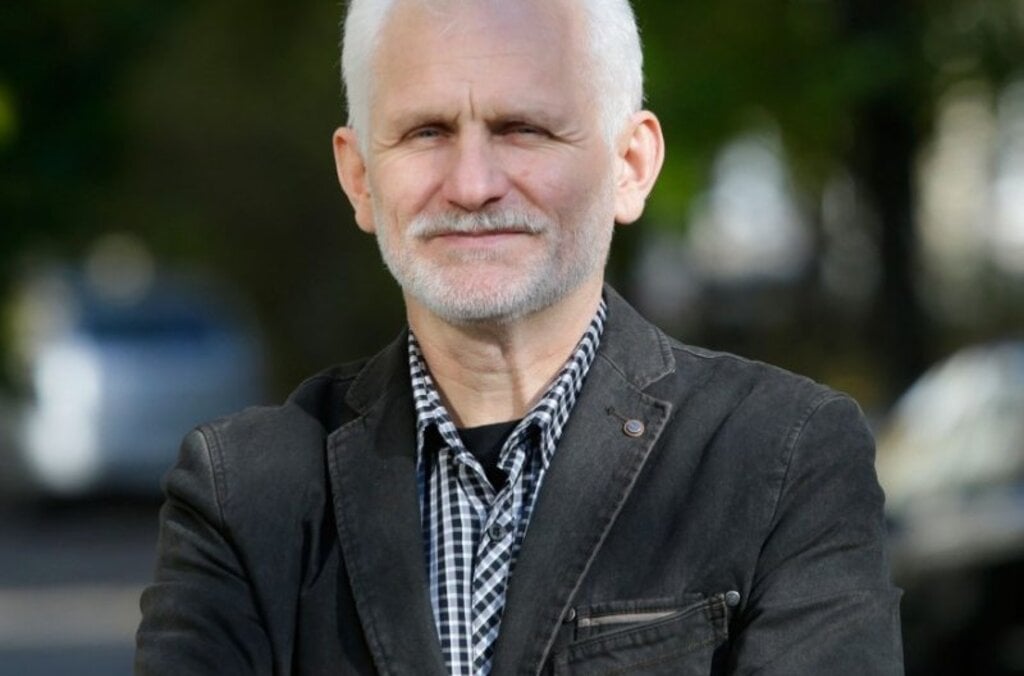Ales Bialiatski
Interview
Interview, September 2023
Interview with Ales Bialiatski’s wife, Natalia Pinchuk, September 2023 in Oslo, Norway.
Natalia Pinchuk answers the following questions (the links below lead to clips on YouTube):
00:00 – Tell us about your husband, Ales Bialatski, and his work
00:29 – How do you think Ales would have reacted to the news of his Nobel Prize?
01:06 – What do you think the Nobel Peace Prize has meant for Ales and his work?
02:10 – What can we all do to help and promote democracy and freedom in the world?
03:52 – What advice do you think Ales would like to share with young peace activists?
04:36 – How can we maintain human rights for all?
07:13 – What gives you hope about the future?
09:07 – Is there a message you would like to deliver from Ales?
Interview, December 2022
On 12 December 2022 nobelprize.org interviewed Aliaksei Kolchyn and Alena Laptsionak, representatives for 2022 peace laureate Ales Bialitski. Both Kolchyn and Laptsionak work at Viasna, the human rights center founded by Bialitski in 1996. The interview took place in Stockholm, Sweden, during the Nobel Week.
What does this peace prize mean?
Laptsionak: First of all, it means huge attention for our country and our problems. We feel solidarity but not only this, we feel that we are not alone. Now we have also brought attention to human rights in the world. It is a huge support to all our political prisoners, people who just because of their thoughts or similar are captive in prison.
Kolchyn: For us it is a huge inspiration. The prize is a huge inspiration and acts as a force and feeling to keep us working with what we are already doing. I personally feel it is a support that Ales organised from jail.
How do you think Ales would have reacted receiving this news?
Laptsionak: The Nobel Peace Prize was a big surprise and unexpected for all of us, for Belarus, for all of civil society and for Ales as well. But we feel it is like a hope and force to continue. It is like a spotlight that gives you the possibility to keep on doing what you are doing. It also makes Ales feel like everything he was doing before wasn’t in vain. It is bringing results.
What can we do to help and promote democracy and freedom?
Kolchyn: First of all, we ask people not to forget about Ales. And not only him – we have five more colleagues from Viasna that are political prisoners. More than 1500 people have been arrested. Every individual can do very simple things, such as writing a card or letter. They might not reach the prisoners but it is still a sign to the administrators at the prison so they feel some pressure that we are keeping track on them.

Portrait of Ales Bialiatski.
Foto: HRC Vesna
Foto: HRC Vesna
This interview has been edited for length and clarity.
First published: March 2022
Nobel Prizes and laureates
See them all presented here.
